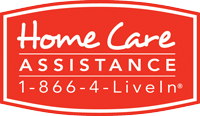How To Help A Senior Loved One After A Parkinson’s Diagnosis.
According to Parkinson Society Canada, there are nearly 100,000 Canadians living with Parkinson’s disease. If your elderly loved one has recently been diagnosed with the condition, he or she can continue to live a happy and healthy life with the right support. Here are a few tips to keep in mind.
CONSIDER LONG-TERM CARE
The rate at which Parkinson’s disease progresses can vary from person to person, and the uncertainty of what to expect can cause a great deal of worry for both seniors and their family caregivers. Sit down with your loved one as soon as possible after the diagnosis to talk about his or her wishes and make plans for future assistance. This is the perfect time to start looking into senior home care agencies that can shoulder some of the caregiving responsibilities and help your loved one remain at home and live independently.
RESEARCH TREATMENT OPTIONS
Though medications like Levodopa remain the gold standard for Parkinson’s treatment, many new therapies are being developed. Encourage your loved one to consult with a Parkinson’s specialist as soon as possible after the diagnosis to discuss which options may be best for him or her. Establishing a treatment plan early on can help slow the progression of Parkinson’s symptoms.
START THERAPY
Lifestyle modifications can help your loved one maintain independence and regain a sense of control over his or her life. Exercise and physical therapy can combat the loss of balance and muscle control, and cognitive therapy and counseling can help your loved one overcome depression and other psychological effects of a Parkinson’s diagnosis.
FOCUS ON THE POSITIVE
In most cases, Parkinson’s symptoms progress slowly enough to allow seniors to find ways to adapt. There are a variety of assistive devices that can make it easier for your loved one to perform daily activities and remain independent. Start by checking online resources that can help you anticipate problems and come up with solutions. Support groups can also be a valuable source of information for Parkinson’s caregivers and their loved ones.
If your loved one needs help managing Parkinson’s symptoms, turn to Home Care Assistance Victoria. Our caregivers can assist with mobility and exercise, provide emotional support, and help with everyday tasks like cooking, bathing, and cleaning. In addition to Parkinson’s care, we also offer specialized stroke, dementia, and Alzheimer’s care that seniors in the greater Victoria area can rely on. For more information on our elderly in-home care services, call one of our experienced Care Managers at (250) 592-4881 to request a complimentary consultation.
 Home Care Assistance,
Home Care Assistance,
1396 Hillside Avenue,
Victoria, B.C.
250-592-4881. 24 hour mobile # 250-217-8310
http://homecareassistancevictoria.ca

